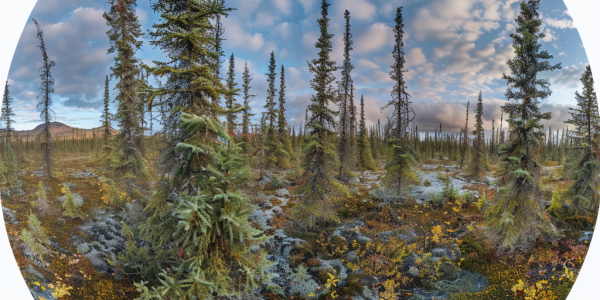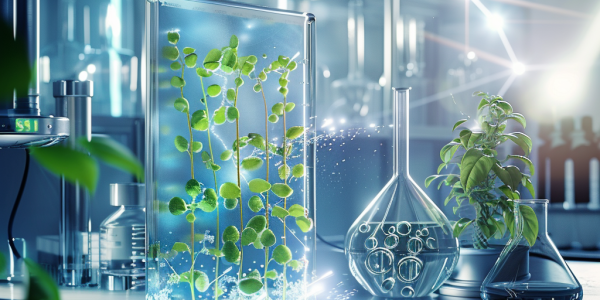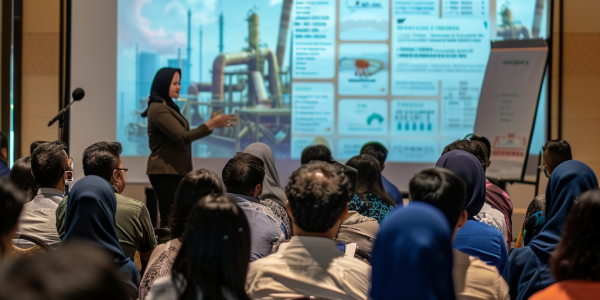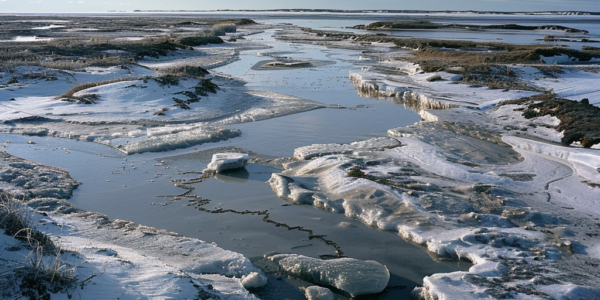20-Year Study Reveals Complex Impact of Climate Change on Alaska’s Permafrost Forests
A groundbreaking 20-year study by Osaka Metropolitan University reveals how climate change impacts carbon dynamics in Alaska’s permafrost forests. The research, published in the Proceedings of the National Academy of Sciences, highlights a complex shift from CO₂ sinks to sources and back, emphasizing the adaptability of black spruce trees amid changing environmental conditions. This vital study aims to refine climate models and enhance our understanding of ecosystem responses to global warming.
New Research Reveals 31% Increase in Global Plant CO2 Uptake
Recent research published in Nature reveals that global plant carbon dioxide (CO2) uptake has increased by 31%, now estimated at 157 petagrams of carbon annually. This study highlights the critical role of terrestrial ecosystems in carbon sequestration and climate change mitigation, utilizing innovative tracking of carbonyl sulfide (OCS) to enhance understanding of photosynthesis. These findings could inform future climate models and policy decisions aimed at reducing greenhouse gas emissions.
Ancient Log Discovery Offers New Hope for Climate Change Mitigation
A groundbreaking study reveals that a 3,375-year-old Eastern red cedar log has the potential to transform climate change strategies by showcasing the effectiveness of wood vaulting, a method that preserves carbon storage even after trees die. This discovery highlights the importance of innovative solutions in carbon sequestration and the need for reevaluating tree planting initiatives in the fight against climate change.
University of Michigan Develops Innovative Artificial Photosynthesis System for Sustainable Ethylene Production
Researchers at the University of Michigan have developed a groundbreaking artificial photosynthesis system that efficiently converts carbon dioxide into ethylene, a key hydrocarbon used in plastics. This innovative approach significantly reduces CO2 emissions compared to traditional methods, paving the way for sustainable fuel alternatives and addressing climate change. The system’s efficiency is five to six times greater than conventional solar energy methods, representing a major leap in sustainable energy solutions.
Indonesia Embraces Carbon Capture Technology to Extend Fossil Fuel Use
Indonesia’s focus on Carbon Capture Storage (CCS) technology is set to extend the use of fossil fuels while reducing greenhouse gas emissions. Saleh Abdurrahman from BPH Migas highlights the potential of CCS in achieving the nation’s net-zero emissions target by 2060. As natural gas becomes increasingly vital in Indonesia’s energy transition, CCS could position the country as a leader in sustainable energy practices, balancing economic growth with environmental sustainability.
Revolutionary Carbon Capture Technology Freezes CO2 in Ocean Faster and Safer
A breakthrough study from The University of Texas at Austin introduces a revolutionary carbon capture technology that freezes carbon in the ocean faster and safer than ever before. This chemical-free method accelerates the conversion of CO2 into hydrates for ocean storage, providing a more efficient and eco-friendly alternative to traditional injection. Lead researcher Vaibhav Bahadur highlights the importance of this innovative solution in combating climate change by rapidly sequestering carbon dioxide in the ocean, preventing its release back into the atmosphere. Published in ACS Sustainable Chemistry & Engineering, this research signifies a significant advancement in carbon capture technology with the potential to address the challenges of global warming and enhance climate resilience.
Geophysical Research Letters Highlights Study on Climate Sensitivity in CMIP6 Models
Geophysical Research Letters celebrates its 50th anniversary with a study on climate sensitivity in CMIP6 models, shedding light on the complexities of climate models and the challenges in translating model projections into actionable policies. Researchers analyze historical emissions and future scenarios to determine Earth’s response to greenhouse gas emissions, essential for informed decision-making on climate change mitigation.
New Research Examines Impact of Rising CO2 Levels on Global Warming
New research led by the University of Washington examines the relationship between CO2 levels and climate sensitivity, providing insights into future temperature projections. By analyzing the most recent ice age, scientists aim to refine their understanding of how CO2 influences global temperatures. The study narrows the estimate of climate sensitivity, offering a more optimistic outlook for future warming scenarios with higher CO2 concentrations.
Arctic Permafrost Thaw Accelerating Greenhouse Gas Emissions
Arctic permafrost region is now emitting more carbon dioxide and methane than it absorbs, contributing to accelerated global warming. Recent research indicates that the ongoing thaw is likely to persist, worsening the effects of climate change.
China’s Rapid Expansion of Electric Power Grid Leads to Surge in Greenhouse Gas Emissions
China’s rapid expansion of its electric power grid has led to a concerning increase in the release of sulfur hexafluoride (SF6) gas, a greenhouse gas 24,300 times more potent than carbon dioxide (CO2) in creating the greenhouse effect. This surge in SF6 emissions poses a threat to global efforts in combating climate change, as it significantly impacts the planet’s radiative budget. The study emphasized the urgency for immediate action to reduce and ultimately eliminate SF6 emissions, stressing the imperative nature of global cooperation in addressing this pressing environmental issue.










